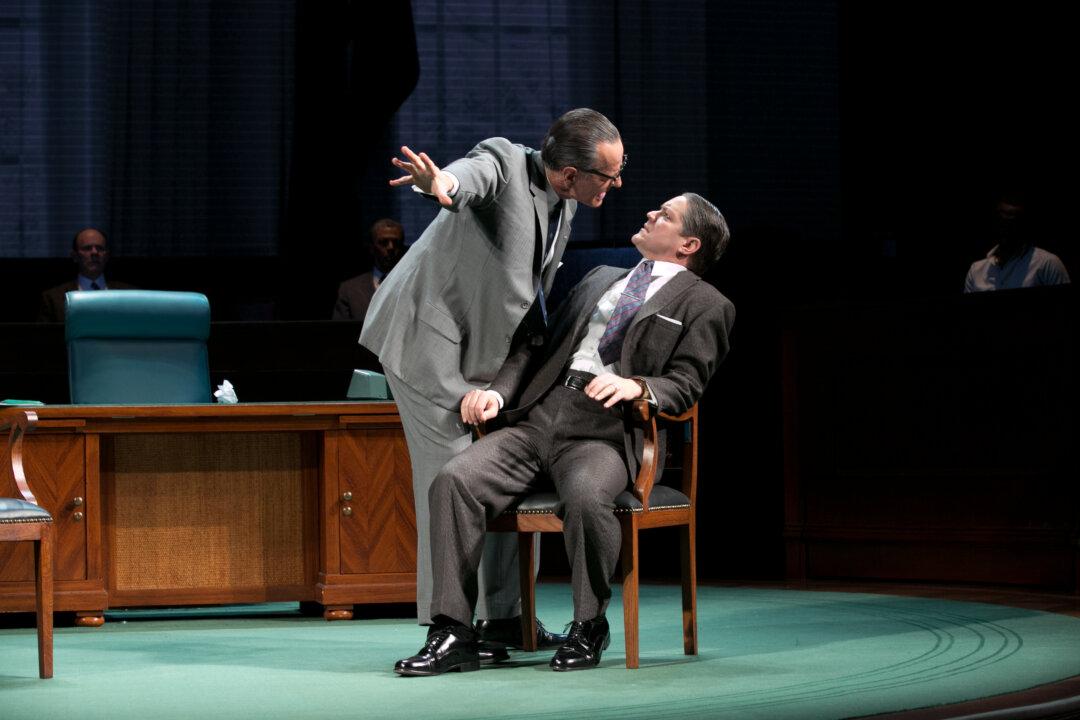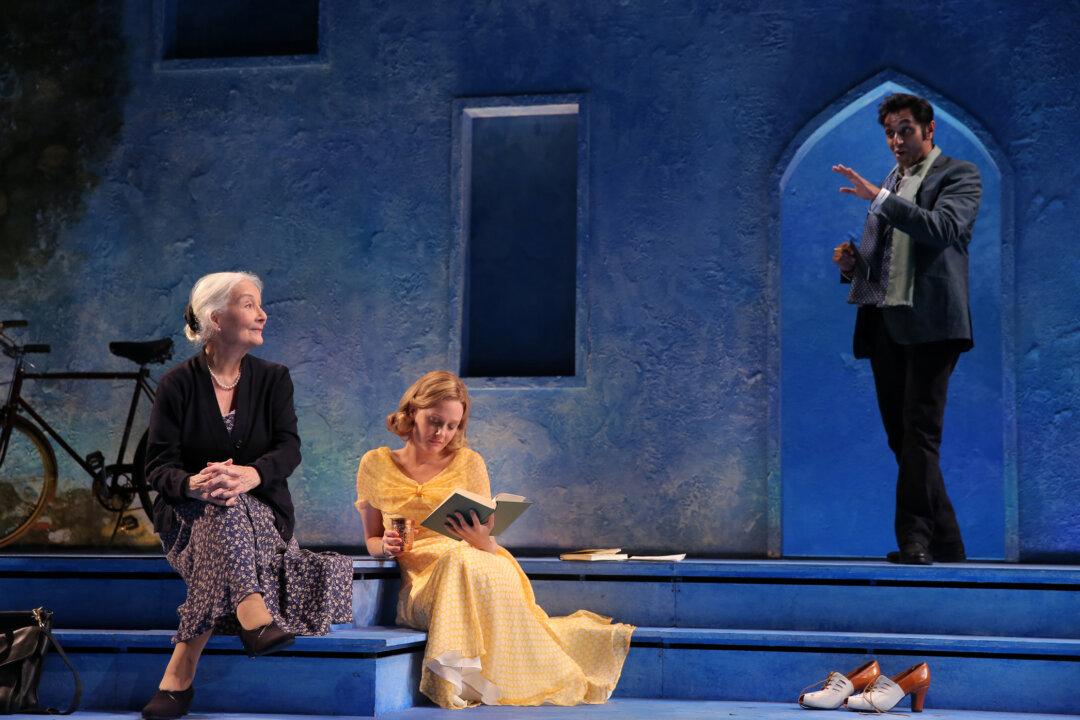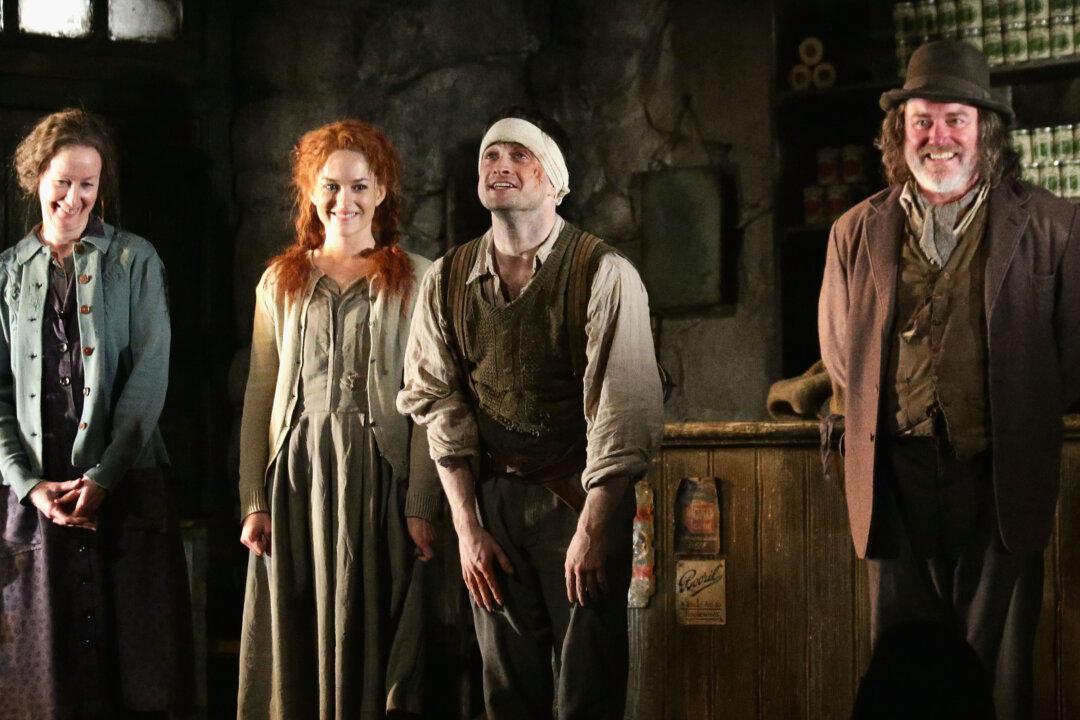NEW YORK—Five days after the assassination of President Kennedy, Lyndon Johnson went before a joint session of Congress and to the surprise of almost everyone proclaimed that his first priority would be passage of a civil rights bill. All the Way, a riveting new play by Robert Schenkkan with a mesmerizing tour de force by Bryan Cranston as the 36th president, is a compelling account of how Johnson pushed that landmark legislation through a recalcitrant Congress.
History plays have not, by and large, been a large sell since Shakespeare. But Schenkkan has turned the yearlong battle over the 1964 Civil Rights Act into high drama. The play condenses the 11 months between Kennedy’s murder on Nov. 22, 1963, in Dallas to Johnson’s election the following November into just under three hours traffic on the stage, quick-cutting from scenes in the Oval Office to various flashpoints of the civil rights struggle in the South.
But All the Way (the title comes from Johnson’s 1964 campaign slogan, “All the Way/ With LBJ”) is more than a dramatized civics lesson. It is a vivid profile of one of the most complicated men to occupy the presidency, a man determined to enact civil rights legislation, even though it would cost his Democratic Party the South, because “it is right.”
Perhaps it’s not such a great leap to go from playing an accidental drug kingpin to an accidental president, but Cranston is simply brilliant as Lyndon B. Johnson. He captures the larger-than-life persona without ever falling into caricature. His Texas accent is pitch-perfect, and if it isn’t always exactly Johnson’s particular drawl, it is so close that anyone who never heard Johnson speak wouldn’t know the difference.
Cranston has mastered the mannerisms, the posture, the gestures, even the facial tics, including what Robert Caro describes in the latest volume of his biography of Johnson as his “deciding expression.” Whether working the phones or twisting arms, whether wheedling or threatening, it is a Lyndon Johnson that is instantly recognizable. And beyond the crudities, the thirst for power, the political maneuvering, Cranston finds and makes credible the insecurities and the need for approval and even love that haunted Johnson.
Johnson was a master manipulator. He could pinpoint what an opponent wanted or needed and exploit it. He could play on Everett Dirksen’s vanity to get cloture in a Senate filibuster. He could convince Southern Dixiecrats that if the Civil Rights Act failed, Barry Goldwater would be in the White House. He would tell black leaders -- or rather he would send Hubert Humphrey to tell them -- they had to compromise. Misquoting Clausewitz, he mused “Politics is war by another name.” And he loved that war.
But Johnson’s personal commitment to civil rights was genuine. In that first speech to Congress as President he declared: “We have talked long enough in this country about equal rights. We have talked for one hundred years and more. It is time now ... to write it in the book of law.” Later he would stand before the same Congress and outline what would become his Voting Rights Act, invoking the words from the civil rights anthem: “We Shall Overcome!”
Civil rights, of course, was not the only crisis Johnson faced that first year. And All the Way touches all the bases. Robert McNamara, for example, comes to him with reports North Vietnam has fired on American vessels in the Gulf of Tonkin. J. Edgar Hoover is busily trying to undermine the Rev. Martin Luther King Jr. as a philanderer or a Communist. And the civil rights movement has its own infighting: Stokely Carmichael constantly spars with Roy Wilkins, and frictions arise between King and his wife, Coretta.
Every major figure in that turbulent year walks across the stage in Schenkkan’s play and a first-rate cast of 20, many playing two or three roles, brings each to life under Bill Rauch’s fluid and well-paced direction. Brandon J. Dirden gives a fine performance as King, delivering the Nobel acceptance speech and a eulogy for a slain civil rights worker in the emotive cadences of a Southern Baptist preacher.
Michael McKean is excellent as the cunning Hoover. Robert Petkoff is “nice,” to use Johnson’s description, as Humphrey, and John McMartin is solid as the good Dixiecrat Sen. Richard Russell. Rob Campbell is admirably unctuous as Gov. George Wallace and pragmatic as the UAW leader Walter Reuther. And Peter Jay Fernandez and William Jackson Harper are convincing as the quarreling Wilkins and Carmichael.
Betsy Aidem adds a touching turn as Lady Bird Johnson, and Roslyn Ruff is moving as Coretta Scott King and especially as Fannie Lou Hamer, the victim of a vicious beating and a member of the Mississippi Freedom Democratic Party delegation to the 1964 convention.
Wilborn Hampton is an author and theater critic.
Posted with permission of Huffington Post





